Medication-Induced Hypertension Risk Calculator
How This Tool Works
Many medications can cause high blood pressure, including common pain relievers, decongestants, and antidepressants. This calculator estimates your risk based on the medications you're taking, helping you identify potential contributors to elevated blood pressure.
Many people assume high blood pressure is just a result of age, weight, or genetics. But what if your meds are the real culprit? Around 2-5% of all high blood pressure cases come from everyday medications - some even sold over the counter. And most patients never see it coming.
What Medications Can Raise Your Blood Pressure?
You might be surprised to learn that common drugs like ibuprofen, prednisone, or even your sinus decongestant can push your blood pressure into dangerous territory. The most frequent offenders include:
- NSAIDs (ibuprofen, naproxen): These pain relievers reduce kidney function and cause fluid retention. Regular use can raise systolic blood pressure by 5-10 mm Hg in people who already have hypertension.
- Corticosteroids (prednisone, dexamethasone): Used for inflammation, autoimmune diseases, or allergies, these drugs can spike blood pressure within days. At doses over 20 mg/day for more than four weeks, up to 60% of users develop hypertension.
- Antidepressants (venlafaxine, duloxetine): SNRIs increase norepinephrine, which tightens blood vessels. At doses above 150 mg/day, 8-15% of users see clinically significant rises.
- Decongestants (pseudoephedrine, phenylephrine): Found in cold and allergy meds, these cause immediate vasoconstriction. A single dose can raise systolic pressure by 5-10 mm Hg for up to 12 hours.
- ADHD stimulants (methylphenidate, amphetamine salts): Used for focus and attention, these raise BP in 10-25% of users, with dextroamphetamine posing the highest risk.
- Erythropoietin (Procrit): Given for anemia, especially in kidney disease, this drug thickens blood and increases pressure in 20-30% of patients.
- HIV medications (HAART): After six months of use, nearly 18% of patients develop new or worsening hypertension - especially those over 65 or with pre-existing high BP.
Even herbal supplements like St. John’s Wort can interfere with blood pressure control. Many patients don’t realize these substances count as “medications” - and providers often miss them during checkups.
How These Drugs Actually Raise Blood Pressure
It’s not magic. Each drug has a clear biological path to raising pressure:
- NSAIDs block prostaglandins - chemicals that help your kidneys flush out sodium and water. Less sodium excretion = more fluid in your bloodstream = higher pressure.
- Corticosteroids mimic aldosterone, a hormone that makes your kidneys hold onto salt and water. A 30 mg/day dose of prednisone can increase your blood volume by 10% in just three days.
- Decongestants activate alpha-receptors in your arteries, making them constrict. This forces your heart to pump harder against tighter vessels.
- Antidepressants like venlafaxine prevent your brain from reabsorbing norepinephrine. More norepinephrine in your system = more stress on your blood vessels.
These aren’t side effects you’ll feel right away. That’s why they’re so dangerous. You might feel fine - but your numbers are climbing.
How to Monitor Your Blood Pressure When Taking These Drugs
Waiting for symptoms like headaches or dizziness is too late. You need to track your numbers before and during treatment.
Baseline check: Get your blood pressure measured before starting any new medication - even if you’ve never had high BP before.
Early follow-up: Check again at 1-2 weeks and again at 4-6 weeks after starting. This is when most drug-induced rises happen.
Home monitoring: Use a validated home BP device. Take two readings in the morning and two in the evening for seven days. Ignore the first day’s numbers. Average the rest. This gives you a real picture of your trend.
For high-risk patients: If you already have hypertension, kidney disease, or are on multiple BP-raising drugs, ask about ambulatory blood pressure monitoring (ABPM). This device takes readings every 20-30 minutes over 24 hours. It catches spikes your clinic visits miss.
Special case - corticosteroids: If you’re on prednisone or similar, check your BP daily for the first month. Watch for orthostatic changes - if your standing BP is more than 20 mm Hg higher than your sitting BP, it’s a red flag.
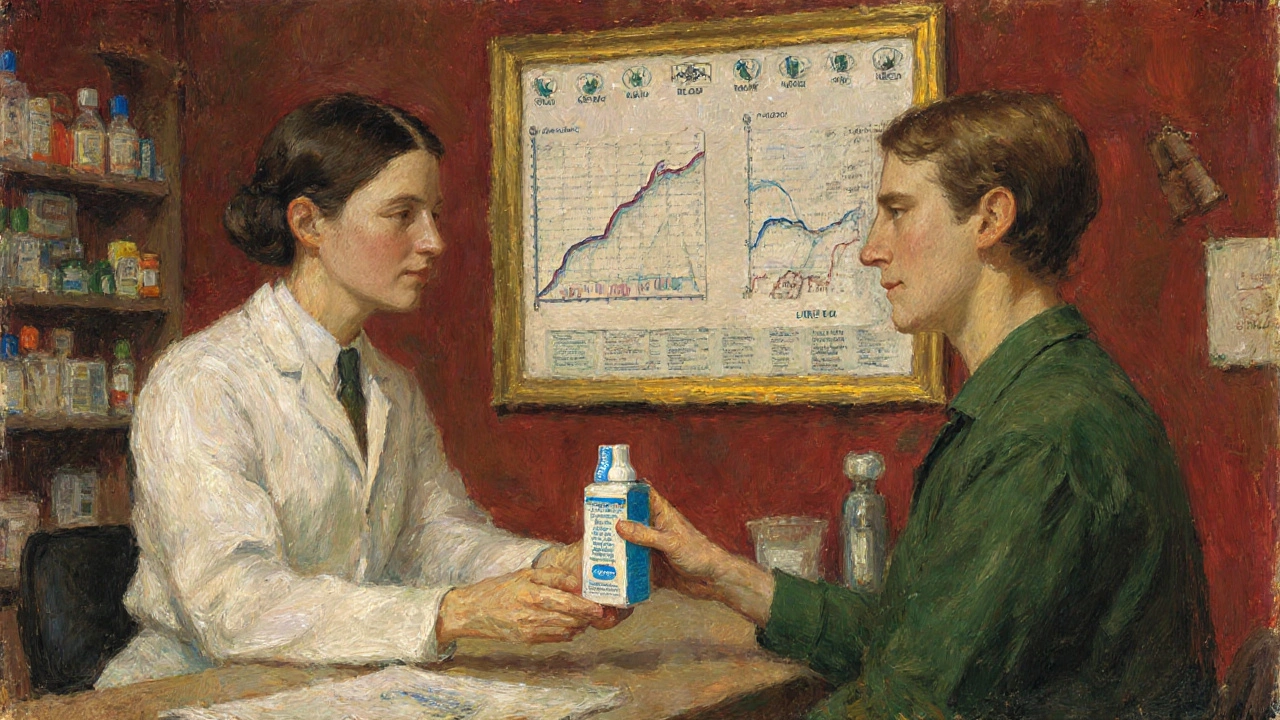
What to Do If Your BP Rises
Don’t panic. But don’t ignore it either. Here’s what works:
- Review your meds with your doctor. This is the most important step. Many cases resolve simply by switching or stopping the culprit. For NSAIDs, 60-70% of patients see improvement within 2-4 weeks after switching to acetaminophen or celecoxib.
- Switch to safer alternatives. For pain, try acetaminophen (up to 3,000 mg/day). For congestion, use saline sprays or antihistamines instead of pseudoephedrine. For depression, SSRIs like sertraline tend to be gentler on BP than SNRIs.
- Use the right BP meds if needed. If you can’t stop the drug (like prednisone for lupus), your doctor should pick antihypertensives that target the mechanism. Calcium channel blockers (amlodipine) and thiazide diuretics (hydrochlorothiazide) work best. Beta-blockers? Avoid them. They’re ineffective against vasoconstriction and only help 45% of the time.
- Lifestyle tweaks help - a lot. Cut sodium to under 1,500 mg/day. Add potassium-rich foods like bananas, spinach, and sweet potatoes (2,500-3,500 mg/day). Walk 30 minutes five days a week. These changes can drop your BP by 5-8 mm Hg - enough to avoid adding more pills.
One patient in Wellington, New Zealand, had readings of 160/100 for months. She thought it was stress. Turns out, her daily Sudafed for allergies was the cause. Switched to a non-decongestant cold remedy, and her BP dropped to 124/78 in three weeks.
Why Doctors Miss This
It’s not that they don’t care. It’s that they’re overwhelmed. A 2022 study found only 58% of doctors could correctly list all the top BP-raising drugs. And only 22% routinely ask patients about OTC painkillers or cold meds.
Patients don’t always tell them either. On Reddit’s hypertension forum, 68% of users said they were never warned about NSAIDs affecting blood pressure. Another common story: “I took St. John’s Wort for anxiety. No one told me it could cause a hypertensive crisis.”
Doctors focus on prescriptions. They forget about the bottle of ibuprofen in your bathroom cabinet or the herbal tea you drink daily. That’s why you have to speak up.
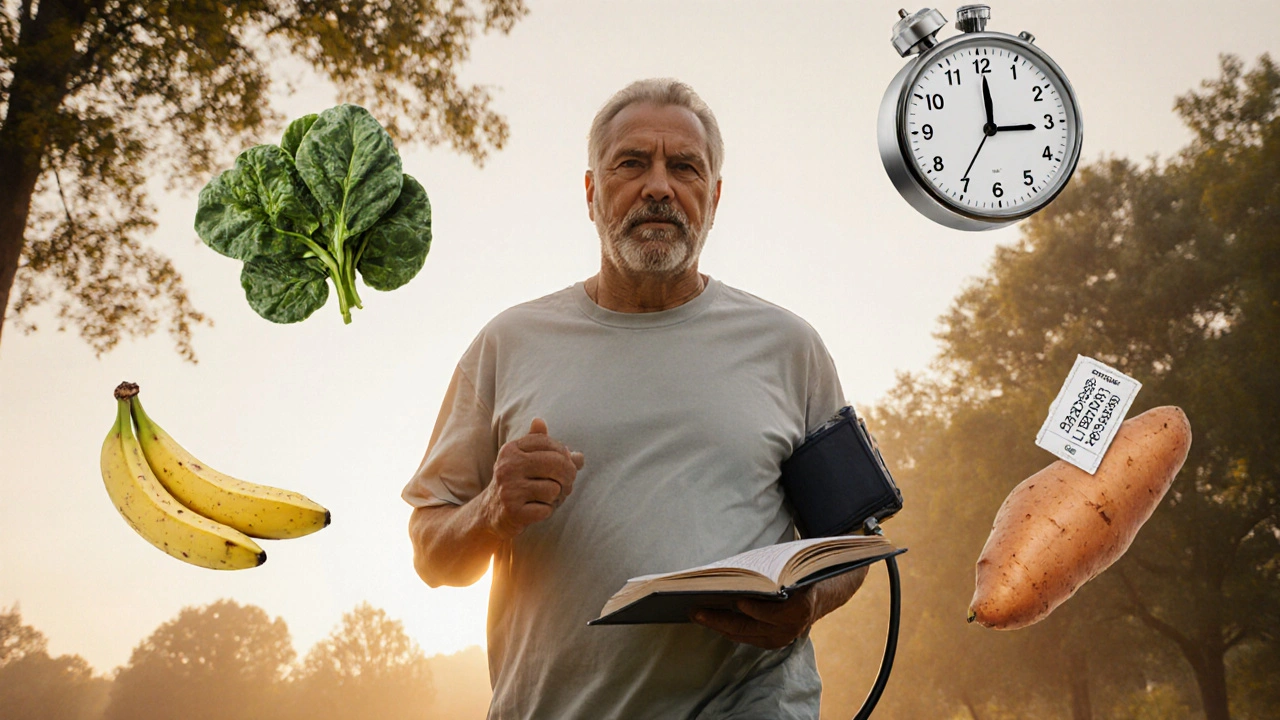
What You Can Do Right Now
Don’t wait for your next appointment. Take action today:
- Make a full list of everything you take - prescriptions, OTC, supplements, vitamins, herbal teas.
- Check your home BP monitor. Are your numbers higher than usual? Write them down.
- Call your doctor or pharmacist. Say: “I’m on [medication]. Could it be raising my blood pressure?”
- If you’re on NSAIDs long-term, ask about switching to acetaminophen or celecoxib.
- Ask if you need home or ambulatory BP monitoring.
The goal isn’t to stop all meds. It’s to use them safely. Many people need corticosteroids or antidepressants. But they shouldn’t have to risk their heart health to get relief.
What’s Changing in 2025
Things are improving. The FDA now requires stronger warnings on NSAID labels. The American Heart Association launched a free online calculator that estimates your risk based on your meds. And new guidelines coming in 2024 will make medication review part of every hypertension diagnosis.
Pharmacist-led programs are showing promise too. In a trial across 45 clinics, patients who got a pharmacist to review their meds saw a 28% drop in uncontrolled high blood pressure.
But progress depends on you speaking up. If you’re on a medication and your BP is creeping up - it might not be you. It might be the pill.
Can over-the-counter painkillers like ibuprofen really raise blood pressure?
Yes. Regular use of ibuprofen (400 mg three times daily) can raise systolic blood pressure by 5-10 mm Hg in people with existing hypertension, and 3-5 mm Hg in those with normal BP. About 12% of hypertensive patients experience clinically significant increases after just two weeks of use. Naproxen has a milder effect, but NSAIDs as a class are among the most common causes of drug-induced hypertension.
How long does it take for blood pressure to return to normal after stopping a medication that raises it?
It varies by drug. For NSAIDs and decongestants, BP often drops within 2-4 weeks after stopping. Corticosteroids may take longer - up to 6-8 weeks - because the body needs time to reset its fluid balance. Antidepressants like venlafaxine can cause a gradual decline over 3-6 weeks. Always monitor your BP during this time and don’t stop meds abruptly without medical advice.
Are herbal supplements like St. John’s Wort dangerous for blood pressure?
Yes. St. John’s Wort can interfere with medications and raise blood pressure, especially when combined with antidepressants or other stimulants. It affects serotonin and norepinephrine levels, similar to SNRIs. Several cases of hypertensive crisis have been reported in people taking it without knowing the risk. Always tell your doctor about any supplements you use.
Why aren’t beta-blockers recommended for drug-induced hypertension?
Beta-blockers lower heart rate and cardiac output, but most drug-induced hypertension comes from vasoconstriction (narrowed blood vessels) or fluid retention - not fast heart rate. Studies show only 45% of patients respond to beta-blockers, compared to 72% with calcium channel blockers like amlodipine. They’re not wrong - they’re just the wrong tool for this job.
Should I stop my medication if my blood pressure goes up?
Never stop a prescribed medication on your own. Instead, contact your doctor. They can help you weigh the risks: Is the drug essential for your health? Can you lower the dose? Is there a safer alternative? In many cases, switching or adjusting the dose - not stopping - is the best solution.
Can lifestyle changes help lower blood pressure caused by medications?
Absolutely. Reducing sodium to under 1,500 mg/day, increasing potassium intake to 2,500-3,500 mg/day, and getting 150 minutes of moderate exercise per week can lower blood pressure by 5-8 mm Hg. These changes work even when you’re on meds that raise BP - and they reduce the need for additional drugs.
How do I know if my doctor is checking for medication-induced hypertension?
Ask directly: “Could any of my medications be raising my blood pressure?” If they don’t ask about OTC drugs, supplements, or recent changes in your routine, they might be missing this. Bring a full list of everything you take to every appointment - including vitamins, herbal teas, and cold medicines. The more complete your list, the better they can help.
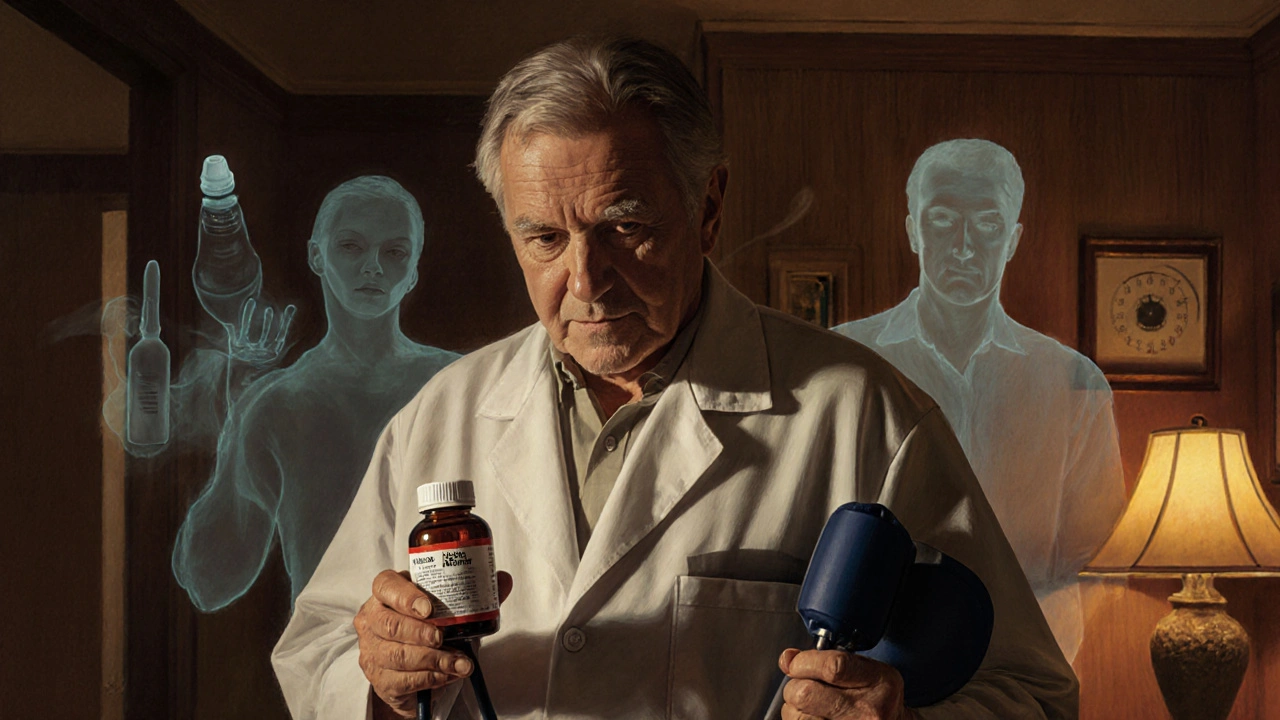

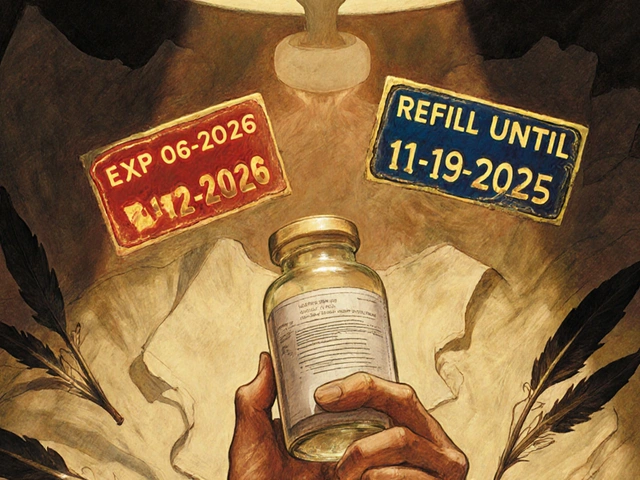
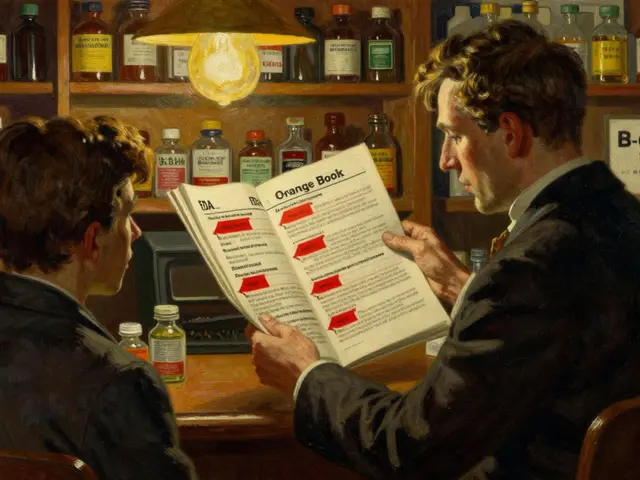
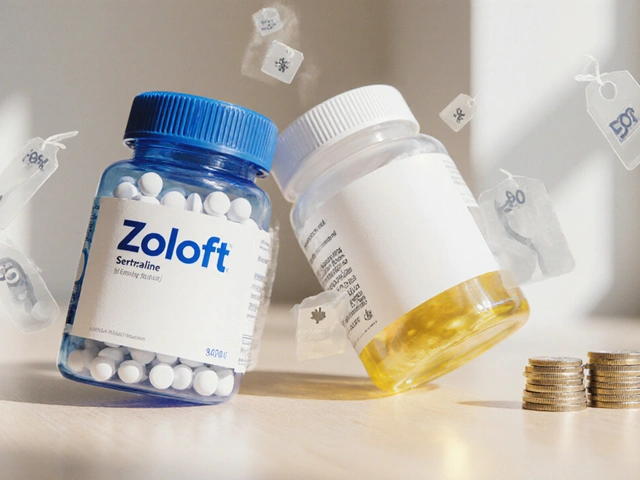
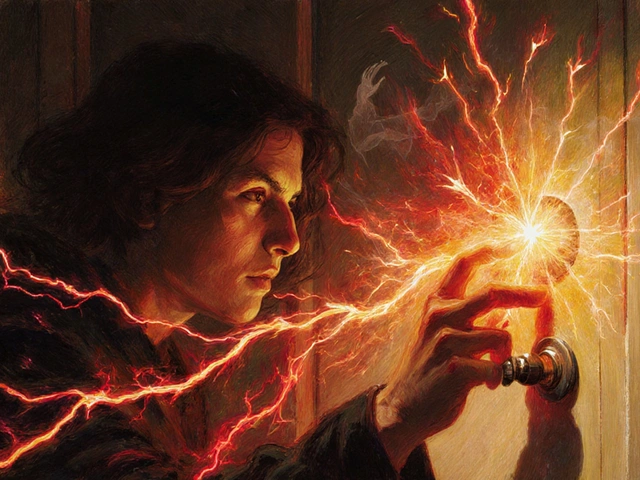
Written by Martha Elena
I'm a pharmaceutical research writer focused on drug safety and pharmacology. I support formulary and pharmacovigilance teams with literature reviews and real‑world evidence analyses. In my off-hours, I write evidence-based articles on medication use, disease management, and dietary supplements. My goal is to turn complex research into clear, practical insights for everyday readers.
All posts: Martha Elena